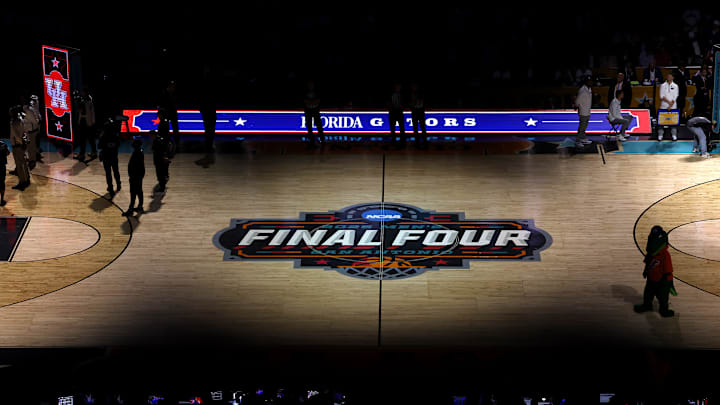NCAA leaders appear to be on a mission to inflict a lethal overdose of nonsense on March Madness, and they will not be deterred by the guiding principle that don't fix something that isn't broken.
Ross Dellenger of On3 Sports reported that officials are "inching closer" to approving a format that would expand the tournament to 76 teams from the current 68 for the 2026-27 season. The plan that seems to be getting the most traction is a 12-team "opening round" at two locations.
It's unclear for now how the women's tournament would be affected.
“There are every year some really good teams that don’t get to the tournament for a bunch of reasons,” NCAA President Charlie Baker said. “One of the reasons is we have 32 automatic qualifiers (for conference champions). I love that and think it’s great and never want that to change, but that means there’s only 36 slots left for everybody else. I don’t buy the idea that some of the teams that currently get left out aren’t good. I think they are. And I think that sucks.”
Executives are inching closer to an agreement to expand the NCAA tournament to 76 teams with a 12-game “opening round” played at two sites starting in 2026-27.
— Ross Dellenger (@RossDellenger) October 2, 2025
If it gets finalized, how will it work?
More in our weekly sports biz column for @On3Sports -https://t.co/nZ4ncpSX62
The proposed new format would preserve the 64-team main bracket.
This sounds nice in theory, but we all know what it really means. Conferences like the American would remain "one-bid leagues" for the most part, while the Power (Grab) 4 teams would gobble up the extra spots with teams that finished 10th place or below in their leagues.
Because, you know, those are "really good teams."
Two years ago, USF was a really good team under Amir Abdur-Rahim. The Bulls won 24 games and the American Conference regular-season championship, but after they were knocked out in the conference tournament semifinals, they weren't considered for an NCAA bid. The argument was that the Bulls' schedule wasn't tough enough.
Well, guess what? That argument won't change when this new deal is in place. USF, under first-year coach Brian Hodgson, will likely have an excellent team this season. But Hodgson is learning, as Coach Amir did, that power teams don't want anything to do with the Bulls.
It's a vicious cycle. Power teams rarely schedule USF. That's especially true of UCF.
“I’ve heard it from multiple places inside the athletic department,” USF basketball play-by-play man Lighthall said on the Jay Reacher podcast. “They offered to go there and play. They really wanted to play in the Orange Bowl Classic. The Bulls have played in Sunrise a few times, played Florida and Florida State there.
“They said, ‘Hey, why aren’t we playing? Why don’t we play in the Orange Bowl Classic? We’ll get a great crowd, neutral site.’ UCF said, ‘We’re not interested.'”
It's naturally assumed that teams in the power conferences are superior, which is how the SEC managed to get 14 of its 16 teams into the tournament last season. Yes, Florida and Auburn made the Final Four, and the Gators won the national title.
No one is saying the SEC was not the nation's best conference last year.
However, 14 bids out of 16 teams?
The Big Ten got eight bids. That's 22 bids for two conferences -- 22 out of 68. That's basically one-third of all bids going to just conferences.
Oklahoma and Texas finished in 13th and 14th place, respectively, in the SEC with 6-12 conference records, but received bids. Blue Blood North Carolina from the ACC got in despite a 1-12 Quad 1 record that is supposed to be a major measuring stick for at-large bids.
That's just wrong, but it will be commonplace if this new format is adopted. Boise State last season went 24-10 overall and 14-6 in the Mountain West. The Broncos had a NET rating of 44. But they were left out because they were upset in the conference tournament.
Sorry, Charlie Baker. That won't change if the tournament is expanded.
The committee would have the green light to reward more teams in the bottom half of power conferences while making excuses why the American can get a second or even third bid.
Book it.
